My wife and I have recently enjoyed watching segments of the old TV series Could It Be a Miracle. One episode featured the story of a Nebraska family returning from a trip to Yellowstone through an isolated area of Montana. Suddenly, their young daughter collapsed with a seizure. The parents knew they had to get to a hospital as soon as possible. But they were forty miles from the nearest town and had no idea if medical services would be available. As they desperately sped toward the town, hoping for the best, they suddenly spied a blue hospital sign directing them where to turn. Several other blue signs followed, leading through multiple turns to the emergency room door of a rural hospital. The attending nurse told them it was good they had got their daughter there so quickly. The parents responded that they would really have been lost without those blue and white hospital signs along the road. The incredulous nurse responded that there were no blue hospital signs anywhere in town. She said they had been trying for years to get the city to put them up, to no avail. The necessary conclusion was that the signs had been heaven-sent. They were never seen again.
Just as a loving Heavenly Father sent literal signs to help a family in Montana, so has He promised that other “signs” would follow those who believe. (Mark 16:17.) These could include miracles, answered prayers, and even angelic visitations. They were never intended to create belief in those who doubted. In fact, Jesus categorized those who sought signs simply to satisfy their curiosity as “wicked and adulterous.”
But to those who already believe or who would like to believe, signs can serve one or more of the following purposes: (1) They may primarily serve just to provide help in time of need. Many cases of healing, protection, comfort, and direction would fall into that category. (2) They may serve to confirm and strengthen our faith in God’s love and goodness, so we will be ever more eager to reciprocate that love and ever more confident in following His direction. (3) Or, like the blue hospital signs in Montana, they may serve to reassure us that we are on the right road, spiritually speaking, letting us know that if we continue in the direction in which we are headed, we can expect to find continual peace and joy in this life as well eternal happiness in the life to come.
Sometimes signs and miracles may be so sacred and personal that we should not share them freely with others. Jesus on occasion told those he healed to “tell no man” what had happened to them. But on other occasions, recounting spiritual experiences we have received can help strengthen the faith of others and give them hope that they can have similar experiences. A major point of the scriptures seems to be to recount instances of divine intervention on behalf of God’s children in ancient times, whose challenges were often not unlike our own. And part of the covenant we make at baptism is to “stand as witnesses of God at all times and in all things, and in all places.” (Mosiah 18:9.) Sharing instances of God’s power and goodness would seem to be an appropriate part of that. I was reassured on this point by a comment by Elder M. Russell Ballard in a BYU devotional address of November 14, 2017. He told the students, “The most powerful thing you can do is share your spiritual experiences with family and friends.”
In that spirit, I propose to devote several future posts at https://latterdaysaintandhappy.com to recounting some of the specific blessings my family and I have received and “signs” we have seen. Certainly, we have had no more such experiences than millions of others have had or can have. Often the difference between those who see the divine hand in their lives and those who do not is not in how frequently miraculous events occur in their lives but in how frequently they notice them.
Some will not think the following stories to be particularly sensational. I have never seen a sea parted, a mountain moved, the dead raised, or someone walk on water. But just as the voice of the Spirit is described as “still” and “small,” so are gifts of the Spirit most often so subtle that skeptics could attribute them to mere coincidence, and argue that in any case the events were of no great importance. But each of the following experiences was very real and very significant to me personally and taken together convince me they cannot be accounted for by simple coincidence. Today’s post will deal with experiences I had between the ages of eight and nineteen.
Earliest Memory of a Spiritual Experience
The first time I remember feeling the Spirit of the Lord, or the Holy Ghost, was shortly after my baptism and confirmation as a member of The Church of Jesus Christ of Latter-day Saints. I was eight years old then, but I didn’t recognize the experience for what it was until some years later. With some embarrassment I must admit that as a seven-year-old I had fallen into the habit of using coarse and vulgar vocabulary I had picked up from friends. At some level I knew that I wouldn’t want to use those words or talk about such subjects in the hearing of my parents. But I honestly have no memory of feeling that I was displeasing my Heavenly Father. Maybe I didn’t even care. I’m sure I had been taught the standard Primary lessons about the purpose of baptism, the need for repentance, and the function of the Holy Ghost. But it was all much more theoretical than real to the young boy that I was.
But after I was baptized and confirmed, something happened. The next time I was about to use a bad word or tell an inappropriate story, something inside me caused me to feel subtly yet unmistakably that it was wrong. It was not merely that someone in either heaven or earth might hear me and disapprove, but a feeling that I no longer even wanted to talk that way. I stopped “cold turkey.” I have never had a desire to talk that way since, and I cringe whenever I hear someone else do so.
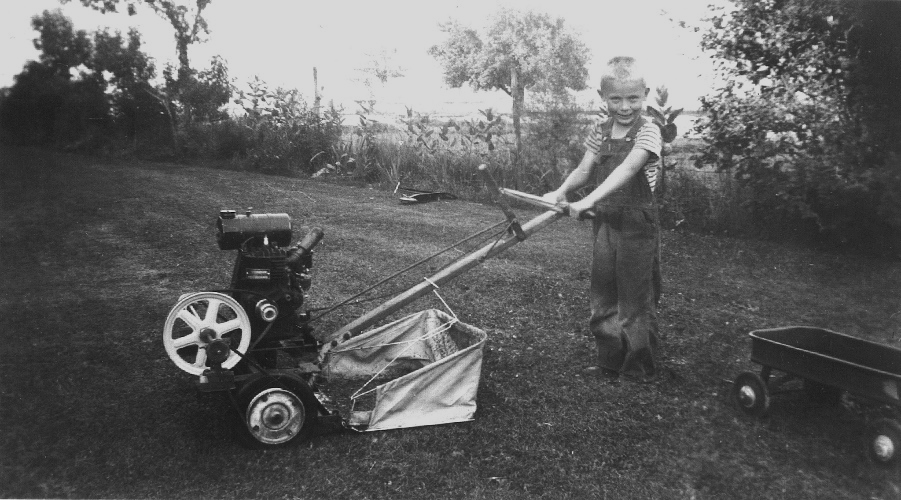
As previously stated, it was only later, reflecting upon the experience, that I realized that I had been blessed with exactly what I had been told the Holy Ghost was supposed to do for me. It was to lead me into all truth, help me discern the difference between right and wrong, and give me the strength and desire do choose the right. I’ll be forever grateful for that early turning point in my life.
Recovery from Nephritis
In the late winter or early spring of 1950, I came down with what my mother’s biography terms “a very serious illness”—acute nephritis (inflammation of the kidneys) and the onset of uremic poisoning. Though it was painful, I delayed telling my mother the symptoms until, in her words, it was “almost too late.” I spent a couple of weeks in the hospital and additional weeks in bed at home, forbidden to get up even briefly, for reasons which as a nine-year-old I did not understand. I remember my folks giving me a radio, on which I listened to all the games I could of the Ogden Reds baseball team, as well as all available major league games. I got to know the rosters of every team in the majors and the batting averages and other statistics of many of the players.
More importantly, I remember my father laying his hands on my head and giving me a priesthood blessing. And while I don’t remember precisely how long doctors had predicted I would need to stay in bed to recover, nor how long I actually did, I remember clearly that I recovered much more quickly than the doctors had foreseen. I was up and walking outside again in the middle of May. I remember how absolutely beautiful the spring flowers looked around our house. And I remember how grateful I was that a loving Heavenly Father responded to a priesthood blessing given by my beloved earthly father. I have never since had any kidney problems whatever.
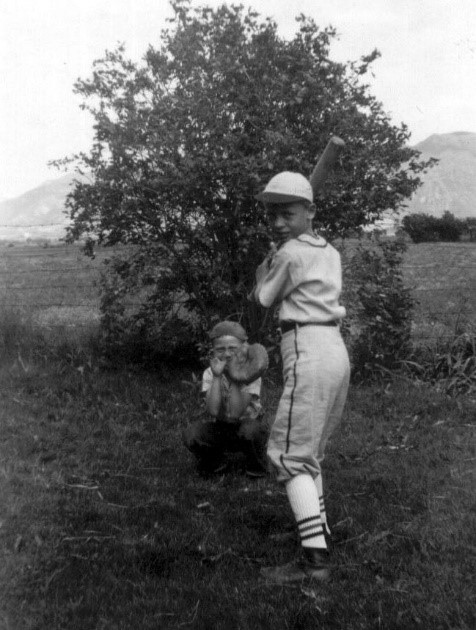
Shot at on two occasions
The first time I was “shot at,” I’m assuming the shooter didn’t really intend to shoot at me. As best I can remember, my brother Marvin and I were playing on a haystack at a friend’s place, when shotgun pellets came whizzing past my head. I was not hit, and I never saw the shooter. Presumably, he was someone hunting pheasants nearby and had not noticed that anyone was in his line of fire.
The second time, I was quite sure I was being shot at semi-intentionally. I was about sixteen and was deer hunting with my dad. We were separated such that I could not see him, though I knew him to be uphill from where I was. As I emerged from cover at one place on the forest hillside, a shot from somewhere below me came perilously close to hitting me. I ducked down for safety. After a couple of minutes, I got up again, only to have another shot fly past. This happened two or three times. I assume I looked like a deer to a legally blind hunter down below. At any rate, I was glad to be afforded whatever divine protection was needed that day to keep me safe.
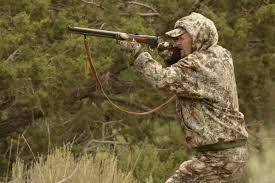
Getting a Testimony by Reading the Doctrine and Covenants
I have related the following story elsewhere on this blog site, but for the benefit of those who have not read all the other posts, I’ll include it again here. I grew up in a Latter-day Saint home, with good parents who took me to church and who taught me in the home as well. I’m sure I took the Church for granted. I didn’t doubt its basic teachings, but I had no strong personal conviction regarding them, either. I do remember my childish response after my mother told me the story of Jesus walking on water. “I don’t believe that,” I told her. She wisely didn’t argue with me or scold me but simply told me, “Someday you will.”
I had tried to read the Book of Mormon at age twelve. But I must have got mired down in the Isaiah chapters in 2nd Nephi, or maybe I didn’t even get that far. In any case, I found it tedious and boring for a twelve-year-old who would rather be out playing ball. If I had to read, I found Sherlock Holmes stories much more to my liking.
When I was fifteen or sixteen, I was enrolled in a seminary class with other LDS high school students my age. At one point, the teacher set up some competition among various groups of students in the class. We could earn points for our team through a variety of activities. One, which offered a lot of points, was to read completely any one of the four Standard Works of the Church—the Bible, the Book of Mormon, the Doctrine and Covenants, or the Pearl of Great Price.
No one at that stage of my life was more competitive than I was. I pondered which book to select. I made the decision by the process of elimination. I had already tried the Book of Mormon once, so it was out. The Bible looked even worse and was certainly longer. But the Pearl of Great Price was so short I felt I couldn’t pick it and still retain some feeling of accomplishment by reading it. So, that left only the Doctrine and Covenants—whatever that was!
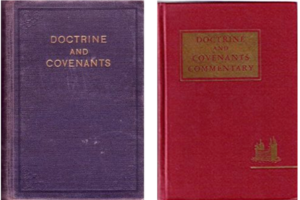
I bought a copy of Smith and Sjodahl’s Doctrine and Covenants Commentary to help me with some of the harder parts and dove in. I hadn’t read far before I noticed something happening to me that I had never experienced before. I was actually enjoying my scripture reading. “Enjoy” is really far too mild a word to describe how I felt. I absolutely loved it. I couldn’t get enough. To read the words the God of heaven spoke in modern times to the Prophet Joseph Smith brought me feelings of intense excitement and spiritual ecstasy. I began taking the book with me when I went out to irrigate the fields, sometimes letting the water pond up at the end of the row as I sat engrossed in what I was discovering. I remember standing up on my bed at home wanting to jump with joy—but refraining, lest I hit the ceiling! Only those who have had the experience can fully understand what I was experiencing. It included feelings of light, love, certainty, and joy. I later found that this was precisely what the Book of Mormon prophet Moroni was talking about in Moroni 10:4-5, when he promised that sincere readers of the Book of Mormon could know for themselves the book was true if they would read it with real intent and ask God about it. I had never read far enough in the Book of Mormon to even know about Moroni’s promise. And I hadn’t asked God if the Doctrine and Covenants was true. But I came to know for myself that it was.
When I finished the Doctrine and Covenants, I was initially disappointed that there was no more. But rather than return to Sherlock Holmes, I decided maybe it was time to give the Book of Mormon another chance. Happily, I found a lot had changed since my first abortive attempts at reading it four or five years earlier. But it was not the book which had changed, but the reader. This time I found the same wonderful feelings in it that I had found in the D&C. I later read the Pearl of Great Price, the New Testament, and finally the Old Testament with the same results. While the Doctrine and Covenants was my first love, scripturally speaking, the Book of Mormon has since become my favorite. I try to read a chapter a day. I have read it dozens of times in English, and at least once in Spanish, Italian, and Portuguese, and have nearly finished it in French. I continue to marvel at its timeliness and the new ideas and spiritual nourishment which continue to come to me as I devour its pages—and the pages of all the other Standard Works with which we have been blessed.
Stake Missionary
When I was nearly seventeen, I was called to serve as a stake missionary, to work with an assigned companion among the Mexican farm laborers within our stake (a group of several LDS congregations in and around Rupert, Idaho.) Several mini-miracles were associated with my two years of service in that capacity.
The first miracle was that I learned to speak and understand Spanish reasonably well. I had studied the language for two years in high school but had absolutely no experience in speaking or understanding conversational Spanish. I was initially a bit discouraged, thinking I would never be more than a yawning appendage to my returned missionary companion. We had a weekly Spanish Sunday School in which I participated, and I would typically go out with my companion a couple of times a week to visit in homes or in labor camps. I was given the opportunity to offer prayers and prepare brief talks for Sunday School or testimonies to share during our missionary visits, but I still didn’t understand much of what else was going on.
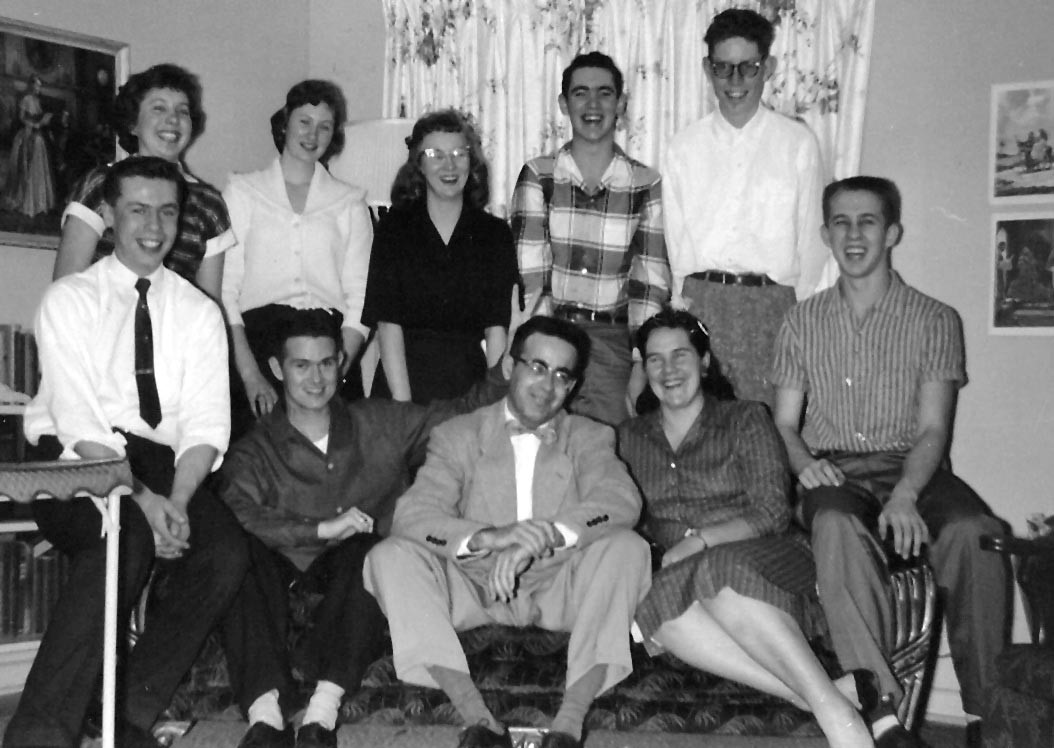
But little by little, things began to change. I can still remember the night when during a visit with non-members, as my companion was speaking, I suddenly realized I could understand more than half of what he was saying. Soon I could say that of what our Mexican friends themselves were saying. In time, I was assigned to a junior companion, who spoke less than I did. I felt I had enjoyed a measure of the “gift of tongues.” I felt I had had divine help in learning the language beyond what should have been expected for the little time I was able to devote to its study. I was grateful at the end of my stake missionary service to be able to leave for a full-time mission to Uruguay with reasonable fluency in Spanish—especially since there were no missionary training centers in those days to provide language training for newly called missionaries.
The second miracle I would mention in connection with my stake mission also had to do with my learning Spanish. I discovered that I could speak Spanish best, with greater intelligibility and less stuttering, when I was feeling the Spirit the strongest. Maybe it was partly that spiritual feelings tend to be accompanied by peace and confidence, which in turn help one be less tongue-tied. In any case, this served as helpful motivation to me to live as worthily as I could, so that I would be able to speak and understand the language as well as possible in my missionary assignment.
Thirdly, I would mention feelings of protection I felt as I sped along the highways and side roads of our county on my motorcycle, often in the dark, on my way to or from missionary appointments. I must have been quite a sight, with my black leather jacket, a policeman’s style hat (without the emblem), and a flannel board flung across the handle bars. I quickly learned that as other drivers don’t necessarily look out for motorcyclists, one had to be ever alert. But I remember taking comfort in the promise of D&C 84:88, “I will go before your face. I will be on your right hand and on your left, and my Spirit shall be in your hearts, and mine angels round about you, to bear you up.” I felt that was literally true, and I never had an accident on the bike.
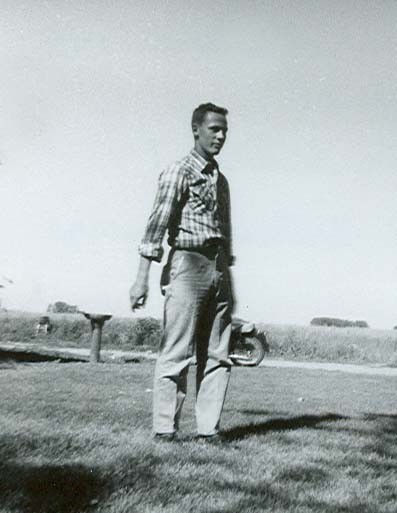
A fourth experience occurred on March 26, 1959. Returning from a stake missionary appointment in the town of Paul, my parents’ car that I was driving that night wasn’t working well. It stopped running completely right in front of the school. I had very limited mechanical knowledge, but I did pour gas into the carburetor two or three times and finally made it to the larger town of Rupert. I bought some more gas in town and finally got the car running again. I prayed that I could get home (five miles outside of town) without any more problem, and the car worked great thereafter until I pulled into our yard, where it immediately stopped running again! This certainly wasn’t a life-saving type of miracle, but it was certainly a much appreciated “tender mercy.”
A fifth memorable experience during my stake mission occurred when my companion and I were asked to provide a priesthood blessing to a sick member. I held only the Aaronic Priesthood at the time, but my companion nonetheless invited me to join him in laying hands on the lady whom we were blessing. I was uncertain if I should, but I went ahead. Though I felt fine at the beginning, as the blessing progressed, I felt progressively weaker and sicker until I thought I was going to fall over. It was not an unusually long blessing, but I was most grateful when it ended. I wondered how I was going to be able to drive home, as completely debilitated as I felt. But following the blessing, as I rode with my companion back to where my motorcycle was parked, my strength and well-being returned progressively until I felt fine again by the time he dropped me off. This has ever been a testimony to me that there is real power associated with priesthood ordinances. Though I have since learned from the writings of Joseph Fielding Smith that my participation in the ordinance was not technically improper (though unusual), perhaps the Lord was teaching me something about the magnitude of the power of the priesthood. Perhaps He was even impressing upon me that the Aaronic Priesthood had limited power compared to that of the Melchizedek Priesthood, which I would later receive.
Accident During Potato Harvest
In the fall of 1958, when I was seventeen, I was injured in an accident during the potato harvest. It could easily have been more serious than it was. I was standing in a potato cellar at the side of a dump truck as it prepared to pull out of the cellar. The driver had no idea I was there. As he put the truck in gear and started to accelerate, he cramped his wheels to the left, pulling the back of the truck to the right and pinning me between the side of the truck and the cellar wall. It pushed on my chest so much I couldn’t yell. I had my outstretched arms on the truck in a futile attempt to push it away, with my elbows against the wall. My body evidently was enough of an impediment to the truck’s progress that it stalled. The driver then tried a second time, with the same result. I wondered if I was going to make it out alive. I wondered again as the driver tried a third time to get the truck out. Finally, another young man saw my plight and quickly alerted the driver, who backed up and freed me. I was taken to the hospital in an ambulance, feeling a little silly about the whole thing, and having a cracked wrist in a sling for some time and the other arm injured such that I couldn’t lift it above my head. I suspect that my guardian angel may have felt I deserved to suffer a little, so I’d be more careful next time. But I’m most grateful to have been protected from a far worse fate. And, as the next story will illustrate, there were some wonderful side benefits to my showing up at the Spanish Sunday School the next Sunday in a sling.
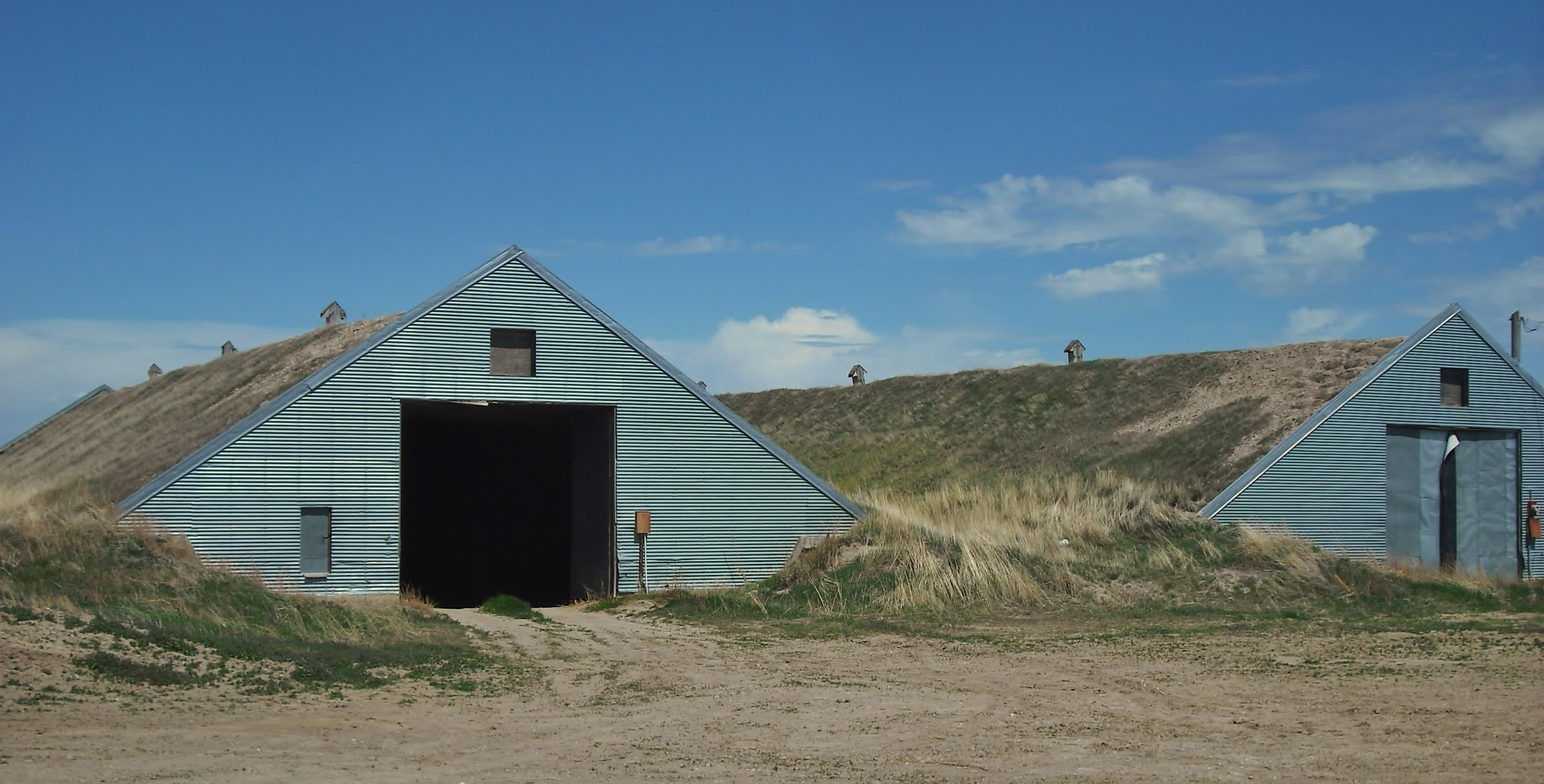
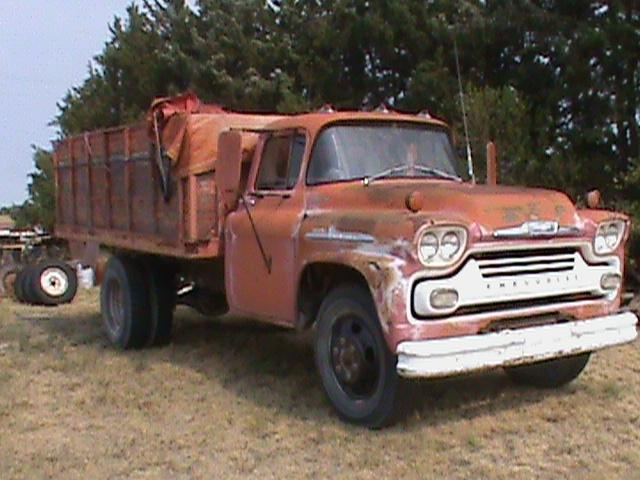
Meeting My Mate on My (Stake) Mission
Soon after I was called to serve as a stake missionary to work with the Spanish speaking people, a young lady a little over a year older than I, Virginia Wilcox, was also called. She had had three years of Spanish, and had been in at least one of the Spanish classes I had been in. We had not been particular attracted to each other at the time. In fact, quite to the contrary. A practical joke a friend and I had perpetrated in class on the other students had not been nearly as funny to anyone else as it was to us.
But Virginia by nature was a very outgoing, friendly, and caring individual. When I showed up to Sunday School after my accident, obviously a bit worse for the wear, she was so enthusiastically concerned and sympathetic that I thought, “I really need to get to know this young lady better.”
But Virginia was a year older than I and had already graduated from high school, while I was still a senior. I was shy, with little social confidence. I remember driving around Halloween evening with my best friend wondering how to get up nerve to ask Virginia out. Happily, an upcoming senior prom scheduled for December 20th provided the needed excuse. On December 7th (Pearl Harbor Day), I managed to verbalize what I’m sure was an awkward invitation, which she graciously accepted. And the rest is history!
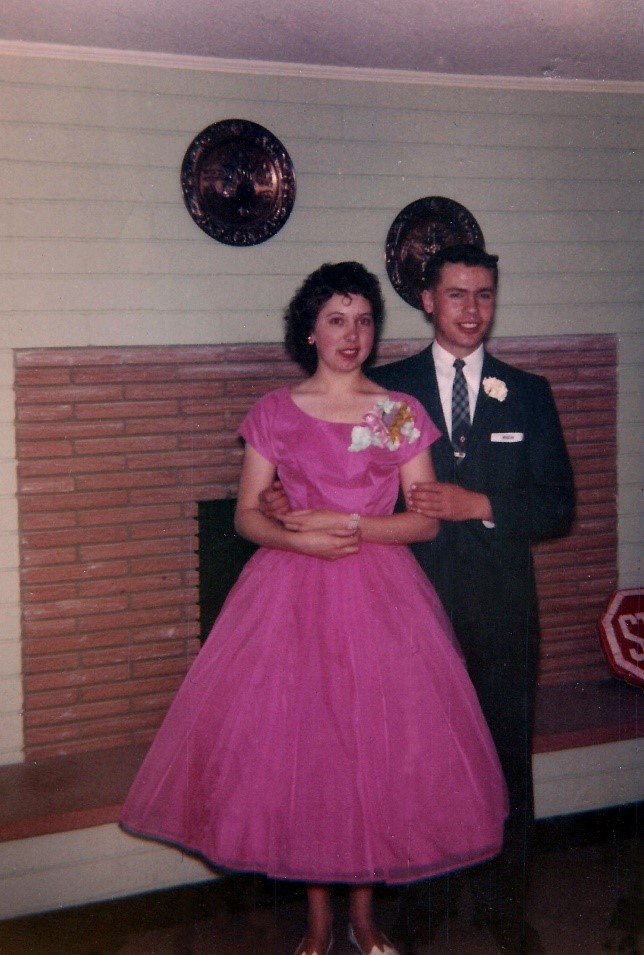
So many things could have made it turn out differently. If either of us hadn’t signed up for Spanish, we wouldn’t have been called as stake missionaries, where we’d see each other at least once a week. If I hadn’t had my accident, Virginia wouldn’t have had occasion to make a fuss over me, in which case I could have continued sufficiently oblivious to her virtues that I might never have asked her out. We have both felt the divine hand in bringing us together.
There have been additional blessings in helping us get past potential obstacles to our having an eternal relationship. After we had dated about four months on a regular basis, an associate of Virginia’s at work set her up to meet a returning missionary that she thought would be a great match for her. Obviously, as he was already back from a mission, whereas I couldn’t return and consider marriage for presumably four years, he would seem to have an edge on me. It didn’t help that most of Virginia’s closest friends were either married, engaged, or getting close to that point.
What seemed to me to be a crisis with potential eternal consequences gave me the incentive to try to call down some reinforcements. I prayed for somewhere between half an hour and an hour straight, (which I had never before done). I had never fasted in my life other than on the monthly Fast Day but felt motivated to begin a two day fast, pleading for help and guidance in the matter. I spent some time later in the week in the seminary library looking for information on the average age at marriage of past presidents of the Church and other prominent leaders, concluding that the average age had been about 25. I prepared notes for a contemplated discussion with Virginia concerning how short four years were and why she might consider waiting for me. The opportunity for that came sooner than I had anticipated, and before I had polished my notes and presentation the way I had intended. But the following Sunday we had a fairly long discussion in her car. I was delighted the following Wednesday when Virginia’s stake missionary companion told me that Virginia had said it was all over between her and the unwelcome competitor and that she was going to stick with me! It made for a very happy eighteenth birthday the following Saturday, as she let me know she felt the same toward me as I did toward her and that she intended to wait for me to get back from my mission.
As we looked ahead to my leaving for a mission in two years, Virginia felt a desire to have the same missionary experience I would be having. At the time, young men had to be twenty years old to be considered for a mission, and young women had to be twenty-three. A year later, soon after my nineteenth birthday, the Church lowered the age for young men to nineteen, and I began immediate preparations to submit my missionary application. But no corresponding change was announced at that time in the age for young women. Virginia asked her bishop if the Church might make an exception to allow her to serve at age twenty-one. He assured her they would not. Virginia therefore took matters into her own hands and made it a matter of earnest prayer.
Soon after, the Church announced that young women could be recommended for missions at age twenty-one, if and only if they had secretarial experience. Virginia was at that time employed as the personal secretary of a company president! While I was serving for two and a half years in Uruguay, she was able to serve for two in Argentina, just across the river. We were able to have very similar experiences and even get to know some of the same people, including Elder A. Theodore Tuttle, who on several occasions took our letters back and forth between the two mission offices on his official trips. And just as our stake missionary experiences paved the way for our having some great experiences on our full-time missions, so did the full time missions prepare us for opportunities and blessings which built one upon another during the ensuing fifty-five years. Details of additional miracles and blessings seen during those mission and post-mission years will be the subject of future blog posts.
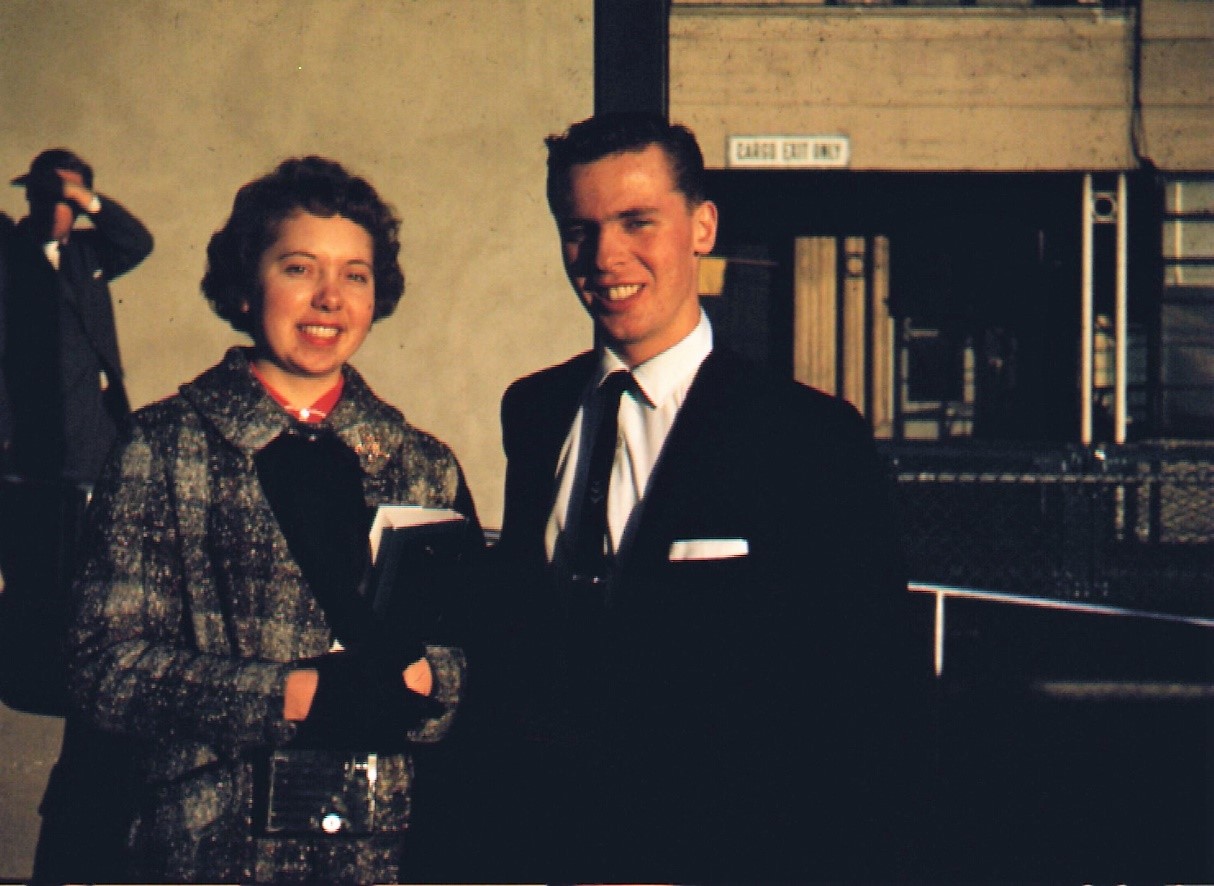
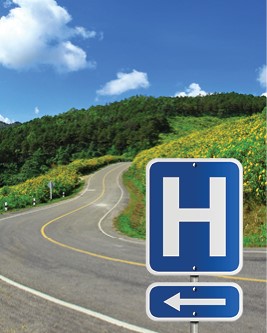
Hey, Don, I’m flattered. You have a picture of me on your blog (with the rest of Walton’s Spanish class). Too bad it’s not a very good picture of me. I’ve been following your blogs with great interest. Maybe some time I’ll send you a story of my experience with “divine intervention”.
Hi, Bob! I’m the one who is flattered–that you took the time not only to read my post but to make a comment. The most striking thing to me about the picture of us in the Spanish class is how recently it was taken. It seems like yesterday. I’d love to get your own story about divine intervention. Or maybe you’ll want to make it the first entry in your own “Bob’s Blog” or “Ball’s Bulletin” site. I’ll read yours if you’ll keep reading mine. 🙂
It is wonderful for me to learn more about your life and experiences. Thank you for sharing. It is inspiring. I couldn’t help but think about the story of the blue hospital signs and my own personal experiences. It seems that more often than not, I don’t see the signs until they are in my review mirror. However, when I do look, I can clearly see the Lord’s hand in guiding my path.